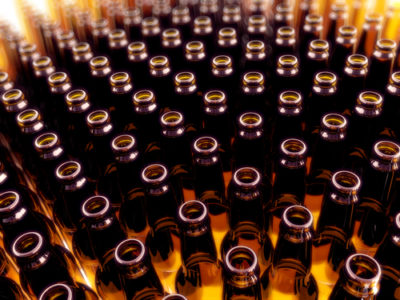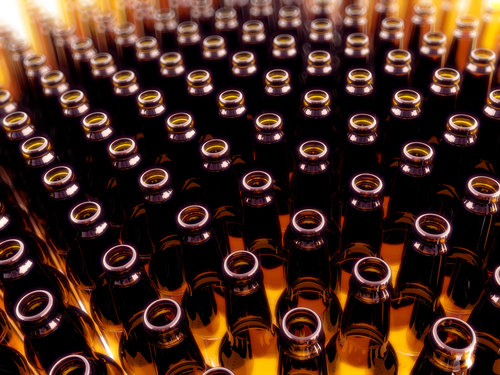How Many Drinks is Binge Drinking?

According to the Centers for Disease Control and Prevention (CDC), binge drinking is one of the most common, deadly, and costly patterns of excessive alcohol use in the United States. In this article, our alcohol detox experts are going to define binge drinking and discuss both the short and long-term consequences of alcohol abuse.
Defining Drinking Levels
Are you worried that you’re drinking too much alcohol and turning into a binge drinker? The simplest way to determine whether or not you fall within this category is to look at where your drinking patterns fall. Below are the primary drinking level definitions.
- The United States Department of Health and Human Services (HHS) defines moderate alcohol consumption as up to 2 drinks per day for men and up to 1 drink per day for women.
- The National Institute for Alcohol Abuse and Alcoholism (NIAAA) defines binge drinking as a pattern of alcohol consumption in which the blood alcohol concentration (BAC) is at 0.08 g/dL. This BAC level typically results from the consumption of 4 drinks for women and 5 drinks for men over the course of a two hour period. The Substance Abuse and Mental Health Services Administration (SAMHSA), on the other hand, defines binge drinking as the consumption of 4 or more alcoholic drinks for women and 5 or more alcoholic drinks for men within the same occasion.
- SAMHSA defines heavy drinking as an individual who binge drinks on 5 or more occasions in the past month.
These guidelines help to define binge drinking in a clear, and easy-to-follow manner. But what are the consequences of binge drinking? Below we will explain why heavy drinking is so dangerous in both the short and long-term.
Consequences of Binge Drinking
Binge drinking can have a number of both physical and mental health consequences. Below are some of the most common effects of binge drinking.
Short-Term Effects
- Alcohol consumption can affect your kidneys in many ways. When you consume alcohol, your kidneys are prompted to produce more urine due to alcohol’s diuretic properties, which can lead to dehydration and low levels of potassium, minerals, salts, and sodium.
- Binge drinking places more strain on the heart, which can result in an irregular heartbeat and/or high blood pressure. In some cases, the effects of alcoholism on the heart can be fatal.
- When an individual is intoxicated, they are more likely to engage in unsafe sex, which can lead to the contraction of Sexually Transmitted Infections (STIs), Sexually Transmitted Diseases (STDs), and/or unplanned pregnancy.
- Heavy drinking, even on a single instance, can cause hypoglycemia within the body. This condition occurs when blood sugar levels drop dangerously low.
- When an individual is drinking, the effects of alcohol can decrease their gag reflex. In cases of extreme intoxication, this can lead to saliva, vomit, or other substances to go into the lungs, resulting in an infection and/or inflammation.
Long-Term Effects
- Heavy alcohol use over an extended period of time can be taxing on the liver, which is responsible for processing toxic substances in the body. Over time, continued heavy alcohol use can result in fatty liver (steatosis), alcoholic hepatitis, fibrosis, and/or cirrhosis (liver disease). Alcohol’s effects on the liver may be irreversible in severe cases.
- Binge drinking is associated with an increased risk of some types of cancer including liver cancer, colon cancer, esophageal cancer, throat cancer, mouth cancer, and/or breast cancer.
- Alcohol can interfere with how the body absorbs nutrients and vitamins, which can result in malnutrition over time.
- Continuous binge drinking can increase the risk of mental health disorders as well as alcohol dependency and addiction. It’s also important to note that individuals who drink heavily are also at a greater risk of experiencing psychosis, anxiety, and depression.
- Heavy alcohol use can also take a toll on your immune system and blood. Excessive drinking results in low platelets, anemia, and a suppressed immune system, which increases susceptibility to infections.
Wrapping Up
As you can see, heavy alcohol consumption can lead to a number of unwanted side effects. If you or someone you love is struggling with an addiction, finding an inpatient alcohol rehab program is the next step for a sober future. Reach out to our Florida alcohol rehab center today to discuss the treatment options available for your alcohol dependence.
Sources:
- American Addiction Centers. “When Does Binge Drinking Become a Problem?” Retrieved from https://americanaddictioncenters.org/alcoholism-treatment/binge-drinking-problem.
- Healthline. “What Happens to Your Body When You Binge Drink.” Retrieved from https://www.healthline.com/health-news/what-happens-to-your-body-when-you-binge-drink#1.
- National Institute on Alcohol Abuse and Alcoholism. “Drinking Levels Defined.” Retrieved from https://www.niaaa.nih.gov/alcohol-health/overview-alcohol-consumption/moderate-binge-drinking.

